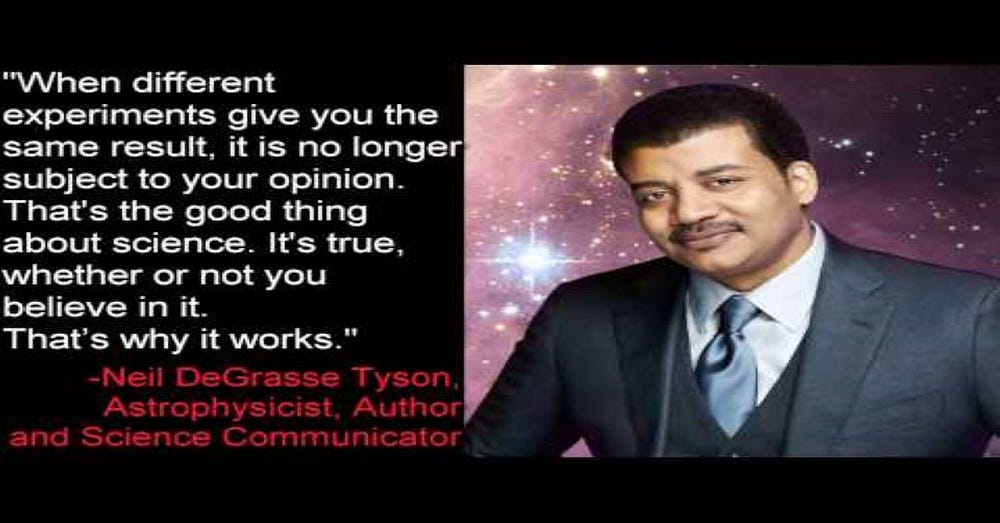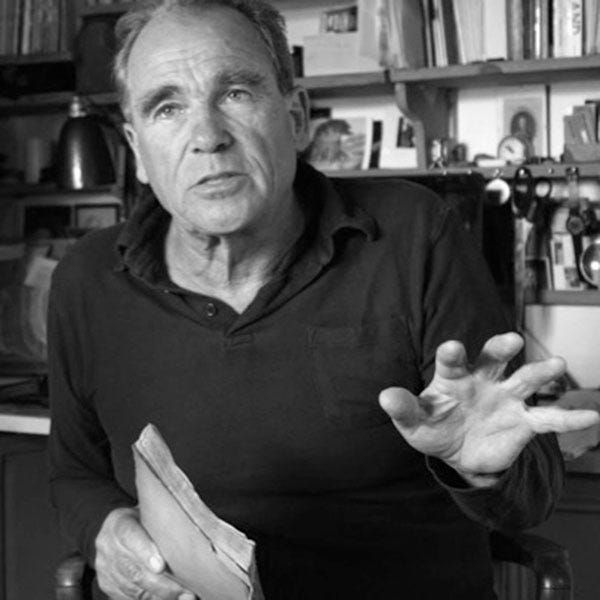Philosopher Jonathan Rée argues that relativists do believe in truth: they simply have their own take on it. Rée also has a problem with the notion of “objectivity” in science.

[The following short biographical introduction which has been copied-and-pasted from the first part of this essay on Jonathan Rée, which is called Jonathan Rée on the Words “Objective” and “Objective Truth.]
******************************
Jonathan Rée (1948-) is a British “freelance” philosopher and historian.
He has written for the London Review of Books, The Independent, New Humanist, Evening Standard, Frankfurter Allgemeine Zeitung, Lingua Franca, Prospect and The Times Literary Supplement. In the1990s, Rée presented the Channel 4 TV series Talking Liberties, which featured conversations with the philosophers Paul Ricoeur, Jacques Derrida and the historian Edward Said.
Rée was a joint founder of the journal, Radical Philosophy.
All the quotes from Rée in the following come from an interview with Jeremy Stangroom, which was published in the book What Philosophers Think. (A separate version of that interview can be found here.)
Jonathan Rée on Relativism and Truth

The philosopher Jonathan Rée argued something that seems, prima facie, to be incredible vis-à-vis the debate on relativism and truth. He says:
“[I]t is simply an unfair debating point to suggest that to be a relativist is to be someone who does not believe there is such a thing as truth. It is just that a relativist is someone who tried to be explicit about the various standards by which truth is measured in different contexts.”
Is Rée arguing that relativists actually believe in truth after all — it’s just that truth must always relative to “various standards” and “different contexts”? That is, is it simply that relativists argue that one can’t have (or even imagine) a context-independent truth? (This, as it stands, is vague.) What would such a truth be like?
Of course an anti-relativist may say that truth isn’t dependent on any context or on anything else for that matter.
That said, surely truths are dependent on what the truths (or the true statements) are about. That, for a start, is a kind of context.
Again, an anti-relativist may argue that a truth is the truth that it is in all contexts and in spite of all contexts. He may also argue that this is part of what makes truths true — that very context-invariability. In other words, a statement can’t be true in one context and false in another. And it can’t be true at one time and false at another time.
Indeed the anti-relativist may add that even time-, place- and person-indexed truths (such as “It is raining today”) can be made explicit if the statement itself is reformulated to include a reference to the time and place of its expression. And that reformulation would capture the complete (to use Frege’s capitalised term) Thought (or, simply, proposition) which (as it were) hides behind the utterance — at least according to some philosophers.
Thus, if a truth is susceptible to variability and relativity, then it ain’t a truth at all.
Standards of Truth
Jonathan Rée also makes a distinction between the following:
(1) Relativism about “the various standards by which truth is measured in different contexts”.
and
(2) Relativism as applied to truth (or the concept of truth) itself.
The anti-relativist (or truth realist) probably will happily accept the relativity of our “various standards by which truth is measured in different contexts”. However, he’ll add that this relativity isn’t actually passed on to truth itself. The relativist, then, is really only talking about the relativity of standards or epistemic procedures.
In response, the relativist may argue that if one accepts the relativity of the standards by which we (as it were) come by truths, then that relativity must indeed be passed on to truth itself. That is, if our standards are context-relative or subject-relative, then truth itself must be context-relative or subject-relative too. Basically, we can’t have one without the other.
This is the point that was (kind of) made by the American philosophers Hilary Putnam (1926–2016) and Richard Rorty (1931–2007) when they discussed what they called warranted assertibility. They argued (in their own ways) that we can’t separate truth from our acts of warranted assertibility or justification.
The following passage is a take on warranted assertibility from Putnam (quoted by Rorty) which shows just how radically at odds with realism about truth this notion actually is:
“Like Dewey, for example, he [“the anti-realist”] can fall back on the notion of ‘warranted assertibility’ instead of truth. [] Then he can say that ‘X is gold’ was warrantedly assertible in Archimedes' time and is not warrantedly assertible today.”
Thus, if truth always (as it were) comes along with warranted assertibility, then perhaps there’s no truth at all without warranted assertibility (or our justifications of what it is we believe to be true). Thus this separation of truth from the variable standards by which we come to truth ceases to make sense. Alternatively, such (as it were) pure truths are simply unworkable.
Again, the anti-relativist may still argue that we must make a distinction between the relativity of the standards by which we arrive at truth and the relativity of truth itself.
But can the anti-relativist justify or legitimise such a distinction? And, if he can, then how does he do so?
Relative Truth in Science
Rée goes on to argue that what the relativist says about science is a little different to what scientific instrumentalists or anti-realists say about science. The following is Rée's position:
“Listen, everything that the ‘friends of science’ want to say about the extraordinary achievements and progress of the natural sciences, both in terms of knowledge and in terms of technique, all of these things can be said by someone who describes themselves as a ‘relativist’ [].”
Instrumentalists — and others - argue that we don’t need the notion of truth at all in science in order for us to accept the theories, achievements and techniques of science. Moreover, science can still have remarkable predictive and explanatory power without it saying that any of these things depend on truth. (The American philosopher Hartry Field says something similar about the notion of truth in mathematics — see ‘mathematical fictionalism’. He basically argues that all we have in mathematics is correctness: never truth.)
Of course scientific realists will argue that science has predictive and explanatory power precisely because scientific theories — or single scientific claims — are true (That’s basically Neil DeGrasse Tyson’s position as quoted in the opening image.)
Other philosophers argue that scientific theories — or single scientific claims — are true precisely because of their predictive/explanatory power, etc.
Yet other philosophers may argue that this is a “difference that doesn’t make a difference”!
On the last point. If science can only have predictive/explanatory power, etc. if its theories are true, then this addition of truth contributes nothing to the debate. After all, even the scientific realist must admit the possibility of something’s having explanatory (if not predictive) power even if it were not true. In addition, if a scientific theory can only have explanatory/predictive power, etc. if what that theory states is true, then can’t we just stick with that theory’s explanatory/ predictive power, etc. and leave it there? That is, why add truth to this equation?
In other words, if predictive/explanatory power = truth (or truth = predictive/explanatory power), then predictive/explanatory power = predictive/explanatory power. This truth can be eliminated from the equation entirely.
This is similar to arguing (as with Frank Ramsey — see here) that if
p
is the same as
p is true.
then we don’t even need the words “is true” at all. (To use Rée's words about the words “objectively true”, the words “is true” are a “rhetorical move” which have illocutionary force.)
So one can sympathise with Rée when he argues that the relativist can agree with
“everything that the ‘friends of science’ want to say about the extraordinary achievements and progress of the natural sciences, both in terms of knowledge and in terms of technique”.
Thus, on this reading, this relativity only applies to the standards by which science has achieved these great things, not to the results or even to the truths themselves. Moreover, even if the relativist does (if implicitly or on Rée's reading) believe in truth, then his relativism is still only be applied to scientific standards or “epistemic norms” — not to any truths discovered by the natural sciences.
Whether this is a coherent position or not is debatable.
Rée also — and again — stresses the superfluity of the idea of something’s being objective.
Science and Objectivity
According to Rée, claims of objectivity don’t add to anything and they don’t get “us” anywhere.
And, so Rée's argument seems to be, if there’ll always be one thing that scientific truth is relative to, then it’s “relative to human discourses”. Rée says:
“[S]cience improves the knowledge and control we have over things that matter to us. Of course, you can say ‘well, it does that because it tells us the truth about the objective structure of the world’ and that’s fine, you can say that, but it’s hardly an ontological big deal.”
So to make (empty?) claims about “the objective structure of the world” isn’t an “ontological big deal”. Indeed it may not be any kind of deal at all.
Again, this is a question of whether or not we can still say that “science improves the knowledge and control we have over things that matter to us” without bringing on board truth — never mind objective truth. Thus if science improves the knowledge and control we have over things that matter to us, then does it matter (or mean anything to say) that this is so because what science says is “objectively true” — or even true at all?
Perhaps the words “objective truth” or “objective reality” are (empty?) compliments we pay to scientific theories or individual scientific claims — compliments which are nevertheless not required.
So do we have a difference between the following? -
(1) What science claims is objectively true.
and
(2) What science says is true.
Indeed is there a difference between the following? -
(1) Science improves the knowledge and control we have over things that matter to us.
and
(2) Science improves the knowledge and control we have over things that matter to us because what science says is objectively true (or even just plain true).
Again, what’s the ontological difference between something’s being objectively true and it being just plain true? In addition, what’s the difference between science improving the knowledge and control we have over things and science doing such things because scientific theories and scientific claims are true?





No comments:
Post a Comment